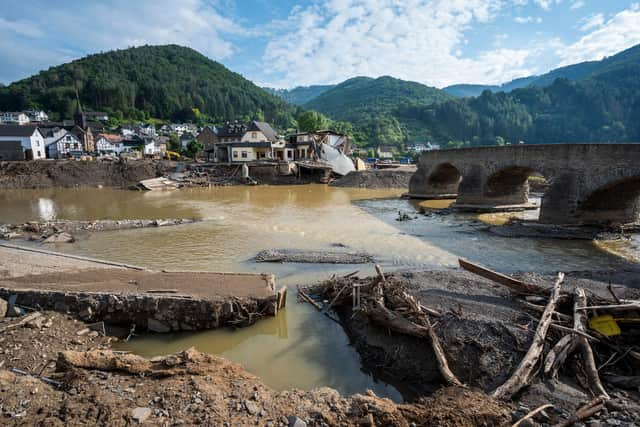COP26: Climate justice and collective responsibility are vital to keeping global warming below dangerous levels – Steve Cardownie
and live on Freeview channel 276
The 197 nations and territories that are signatories of the United Nations Framework Convention on Climate Change are charged with the responsibility of ensuring that the average global temperature rise is below two degrees Celsius (and as close to 1.5C as possible) and world leaders will be informing the conference of the actions their respective countries will be taking to achieve this goal.
Each country obviously has its own circumstances to be taken into account, with one of the most crucial aspects being the ability rather than the will to meet the necessary targets.
Advertisement
Hide AdAdvertisement
Hide AdOnly a fool can continue to deny that climate change is the most pressing issue this planet faces and delegates are all too aware of this, so eloquent speeches about the impending danger are superfluous. We know.
We have all witnessed the floods and forest fires that so devastated many countries earlier this year and as fires continue to burn we must address the most immediate question, not that the global temperature target is absolutely necessary, but how do we achieve it?
That is where “climate justice” comes in. If countries have the finances and resources, they are more able to respond to the demands that climate change thrusts upon them. They are better able to adapt to changeable weather patterns, drought, floods and extreme temperatures, whereas countries with fewer resources can’t.
Climate justice means justice for people, the very same people who are bearing the brunt of climate change phenomena but played no part in its development. Climate refugees who have lost their homes and their livelihoods are in desperate need as they lack the finances to rebuild or relocate. They may have escaped with their lives but face a harrowing future through no fault of their own.


Advertisement
Hide AdAdvertisement
Hide AdThe more affluent countries must help address this problem as well as setting specific, actionable goals to rapidly reduce their emissions and help fund less developed countries to make the transition to clean energy. Vulnerable citizens should be protected from future disasters and the biggest polluters and richest countries need to “step up to the plate” and provide the necessary finance.
Keeping the global temperature rise below 1.5C will pose different challenges for different countries but collective responsibility is a prerequisite of potential success. Each country will have to focus on ways to reduce pollution, abandon the use of fossil fuels, invest in renewables, end deforestation, develop the use of electric vehicles, and set their own real zero targets.
The way forward for delegates, in addition to taking steps to cut emissions, is to provide financial assistance for developing countries, helping those with fewer resources to adapt and compensating them for the consequences of climate change, and set a short time-frame to accomplish these goals.
Now that the political heavyweights are departing for foreign shores, the 30,000 conference delegates from 180 countries are getting down to work. Glasgow can provide the opportunity to turn the corner in the battle against climate change. Let’s hope – for all our sakes – that the delegates grasp it.
A message from the Editor:
Thank you for reading this article. We're more reliant on your support than ever as the shift in consumer habits brought about by coronavirus impacts our advertisers.
If you haven't already, please consider supporting our trusted, fact-checked journalism by taking out a digital subscription.
Comment Guidelines
National World encourages reader discussion on our stories. User feedback, insights and back-and-forth exchanges add a rich layer of context to reporting. Please review our Community Guidelines before commenting.
